Today, there are countless food and beverage alternatives catering to every lifestyle — dairy-free, vegan, gluten-free, soy-free, lactose-free and more. While it’s great to have choices to fit individual needs, not all options are nutritionally equal.
Take milk, for example. Choosing between cow’s milk or plant-based options like soy, almond, coconut, pea, etc., can be overwhelming. Nutrition content can vary considerably in terms of protein, calcium, vitamin D and carbohydrates.
Here, the health benefits of seven different types of milk and what you should know before buying them.
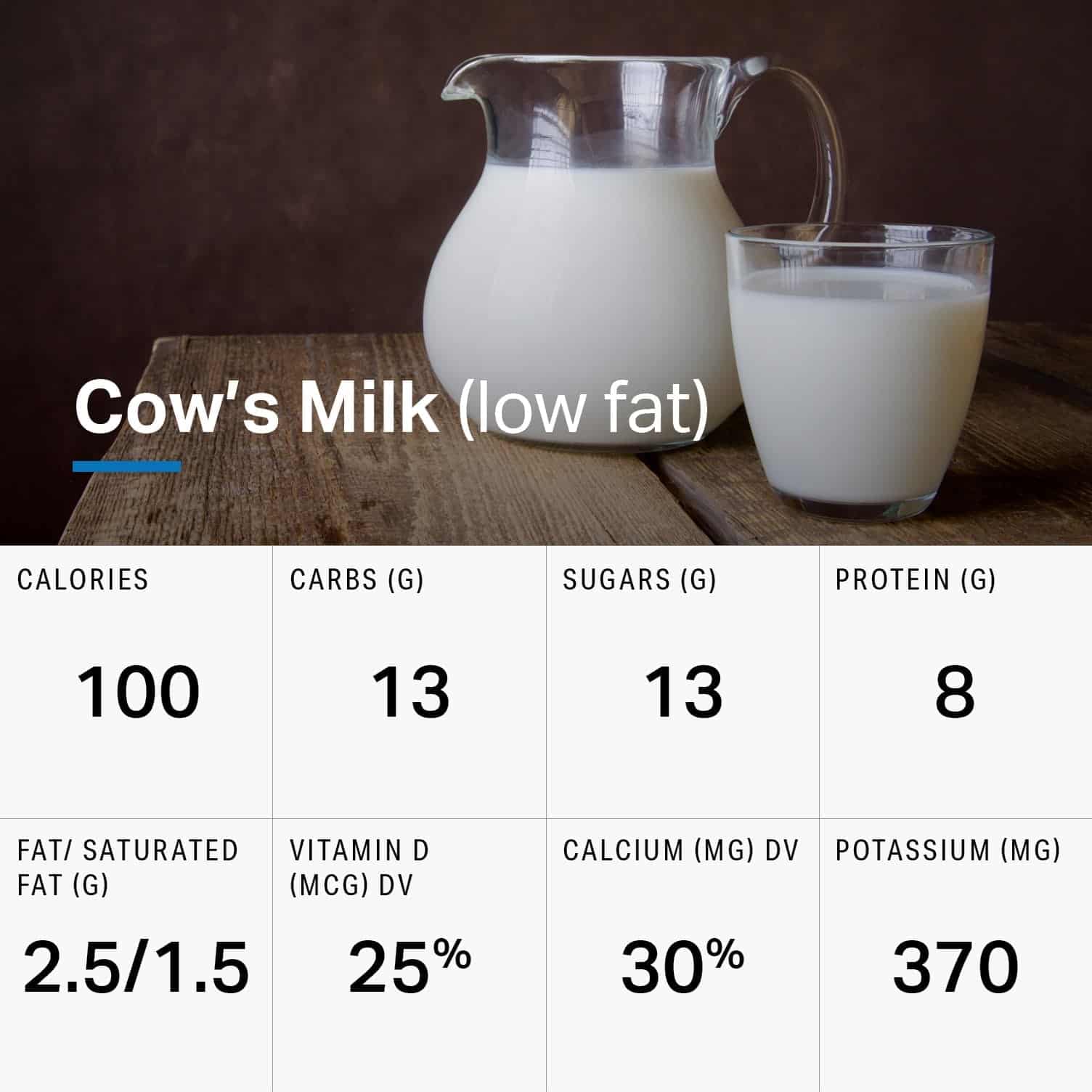
One cup of low-fat milk has 100 calories and 8 grams of protein, as well as 30% of the daily recommended value of calcium, 25% of vitamin D and 8% of potassium. While it contains 13 grams of sugar, it’s in the form of lactose, which is a natural part of cow’s milk. The fat content varies depending on the type chosen (skim vs. low-fat vs. whole milk).
Note: Those with lactose allergies or sensitivities can also find lactose-free milk with a similar nutrition content.
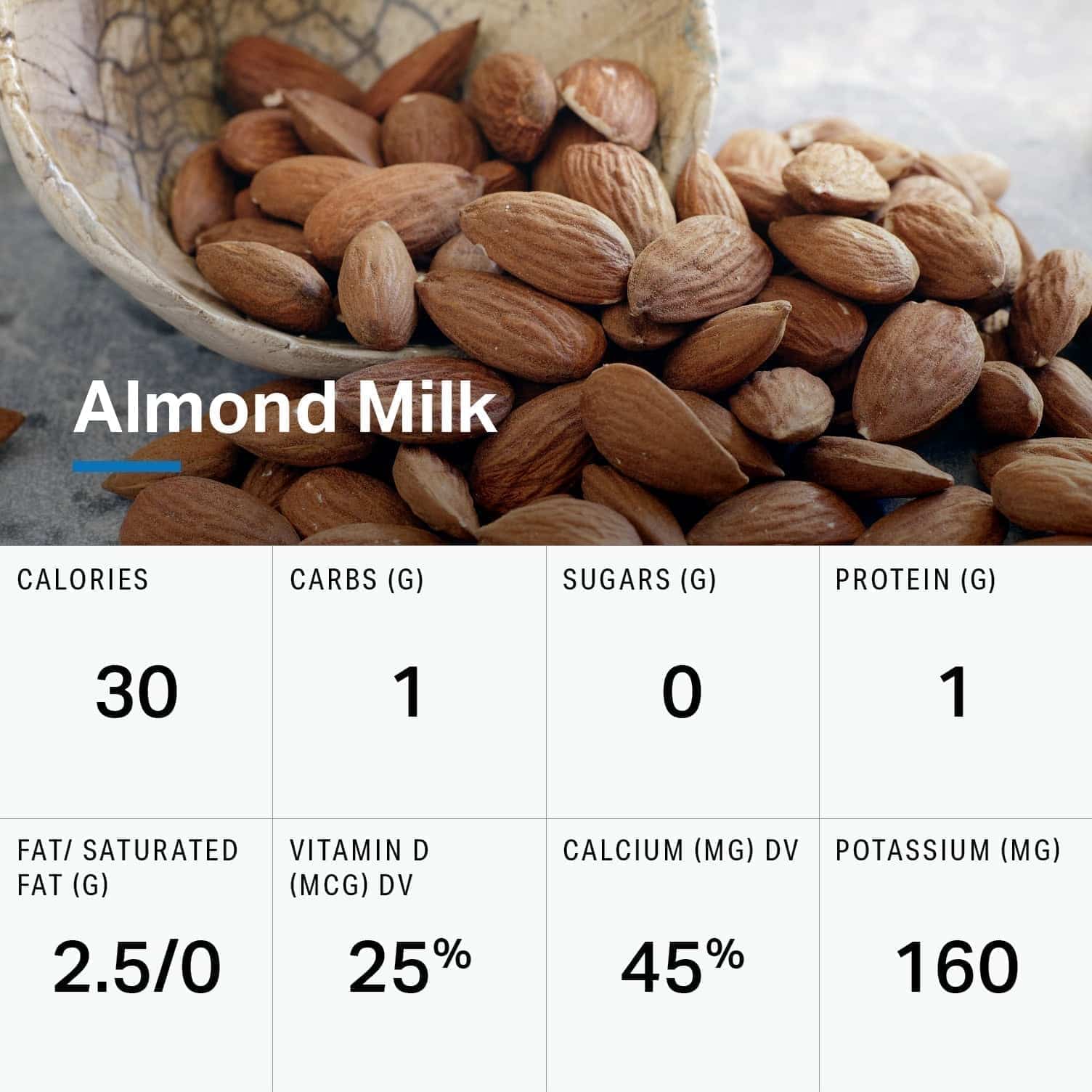
Unsweetened, original almond milk is the lowest-calorie option on the market with just 30 calories per cup. While it lacks protein (only 1 gram per cup), most brands are fortified with calcium, potassium and vitamins A, D and E.
Note: Almond milk is vegan and lactose-free, but may not be suitable for those with nut allergies.
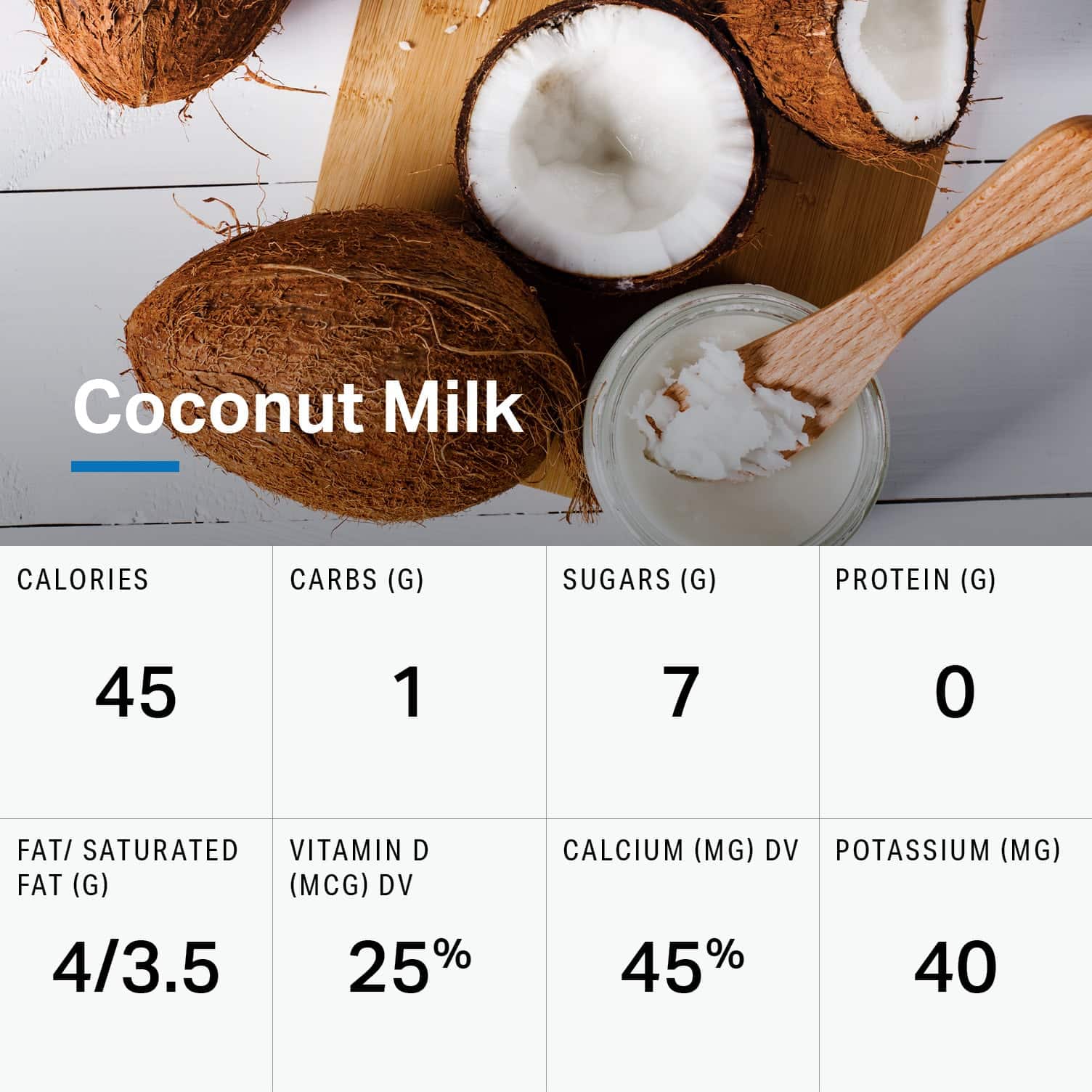
One cup of unsweetened coconut milk has 45 calories and 4 grams of fat, which is mostly saturated fat due to the coconut cream. It doesn’t contain any protein, but is fortified with vitamin A, calcium, vitamin B12 and vitamin D.
Note: Coconut is technically not a nut and may be safe for those with nut allergies. It is also a vegan alternative and safe for those with allergies to dairy or soy.

This frothy, creamy option is made by soaking steel-cut oats or whole groats in water and then straining them. It contains some protein (4 grams per cup) and is higher in carbohydrates and fiber than many milks. It’s also low in fat and contains B-vitamins, as well as trace amounts of other nutrients like magnesium and phosphorus. Plus, commercial oat milks are enriched with calcium, vitamins A and D and potassium.
Note: Oat milk is vegan and can be gluten-free, as long as it was made with oats that were not processed on the same equipment as gluten-containing grains. Like many other plant-based alternatives, it acts as a great option for those who are allergic or sensitive to soy or dairy.
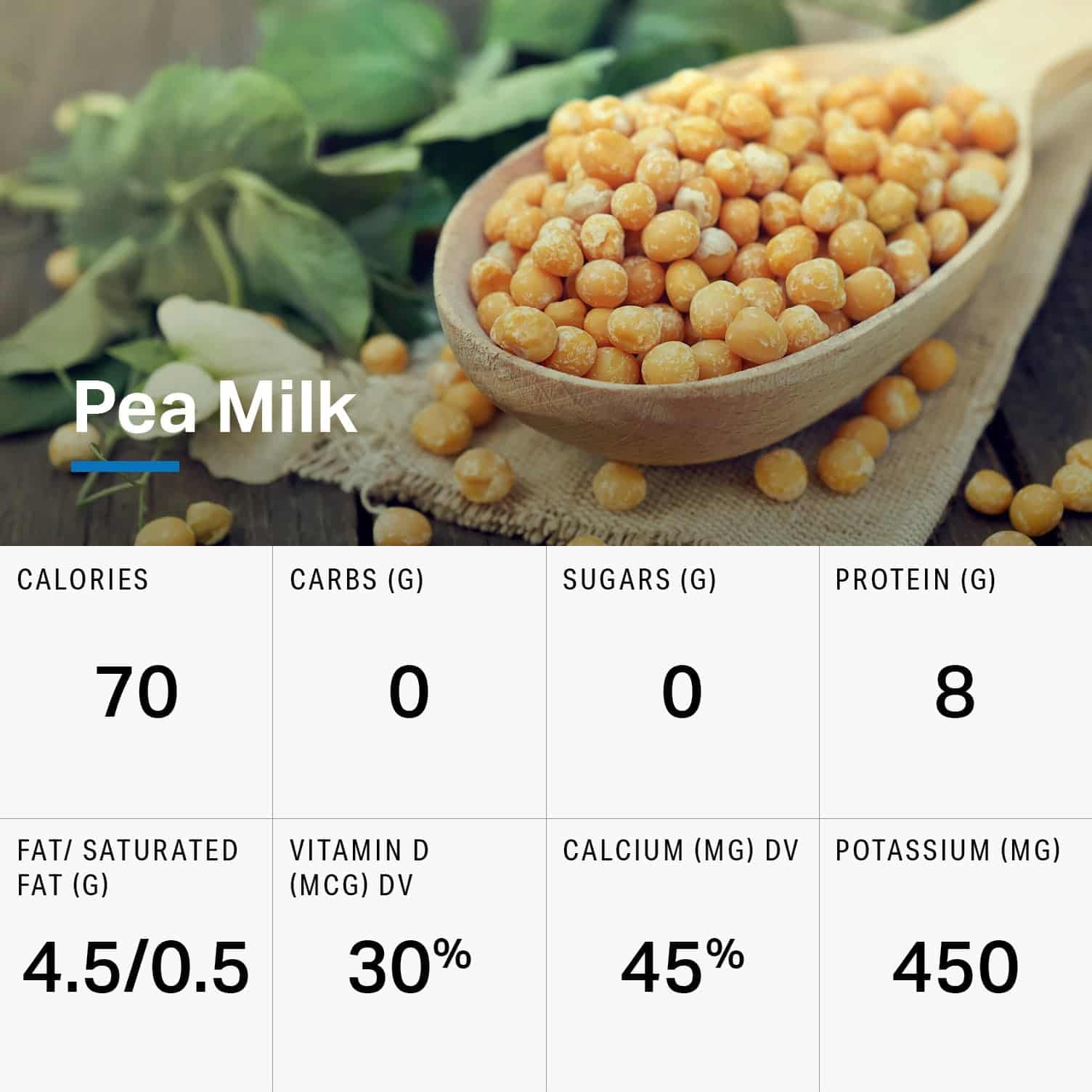
Made from split yellow peas, pea milk is a newer plant-based option. One cup of the unsweetened variety has 70 calories and 8 grams of protein, comparable to both cow’s and soy milk. Pea milk also has a similar potassium content to cow’s milk and offers the highest amount of potassium among nondairy beverages. What’s more, commercial pea milk is enriched with vitamins A and D, calcium and DHA omega-3 fatty acids.
Note: Pea milk is a good alternative for those allergic to or avoiding dairy, lactose, soy and/or nuts. It is also cholesterol free and unsweetened versions have no carbohydrates or sugar.

This option ranks low on the calorie-to-protein ratio since one cup contains 90–120 calories, with virtually no protein. Since it’s made from milled rice and water, it contains the least amount of nutrients. However, it is low in fat and doesn’t contain any saturated fat. Look for unsweetened varieties and ones enriched with calcium, vitamin D and B vitamins.
Note: Rice milk is lactose- and cholesterol-free and may be a good option for those with allergies to dairy, soy or nuts.
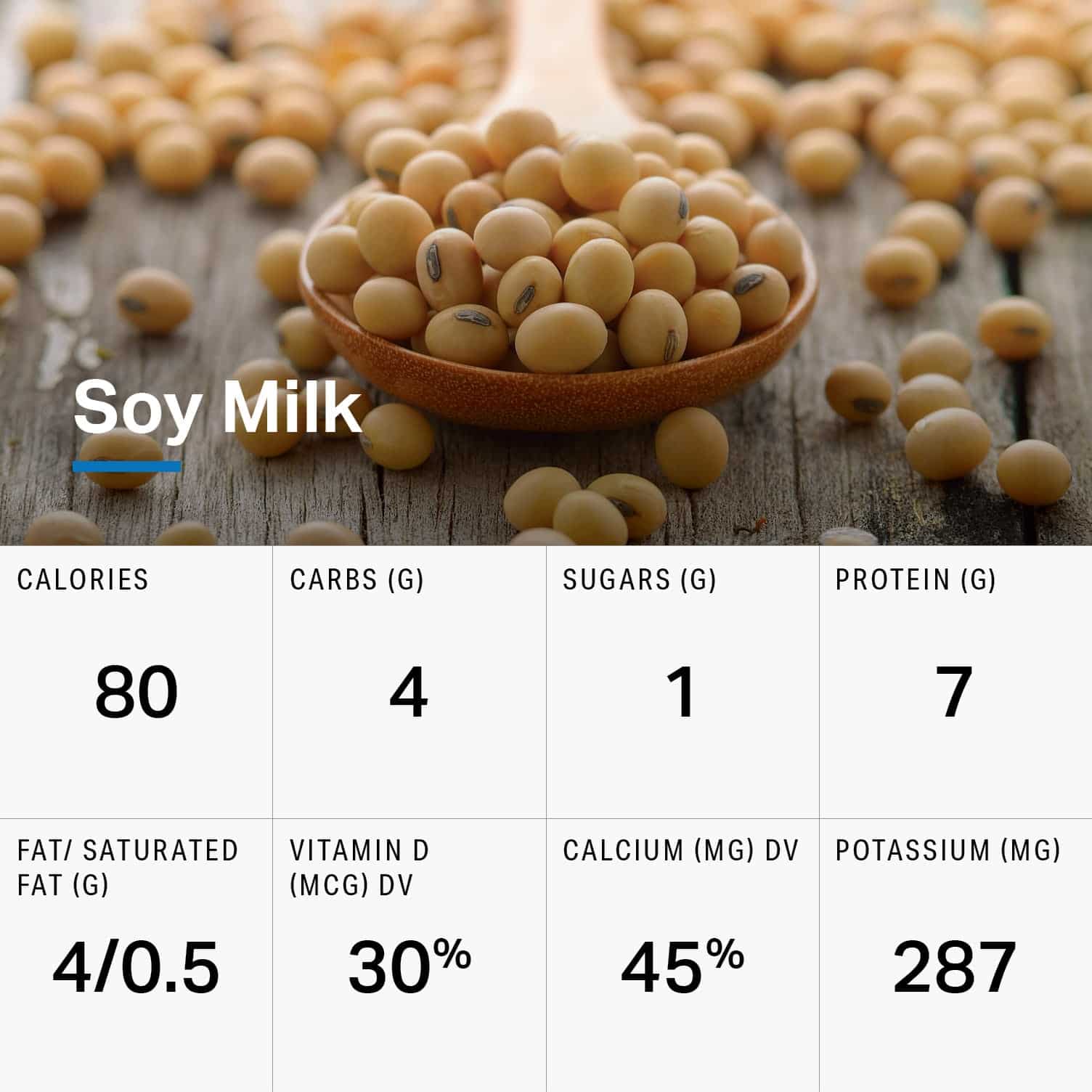
One cup of unsweetened, original soy milk has 110 calories, 8 grams of protein and considerable levels of calcium and vitamin D. Soy milk also has small amounts of iron and offers nearly 50% of the daily recommended value of B12, which is generally lacking for vegans and in many plant-based diets.
Note: Soy milk is cholesterol-free and low in saturated fat. It is one of few nondairy milks with a comparable protein content to cow’s milk.
[pdf_insert pdf=”https://blog.myfitnesspal.com/wp-content/uploads/2018/08/UACF-Milk-Varieties-Chart.pdf”]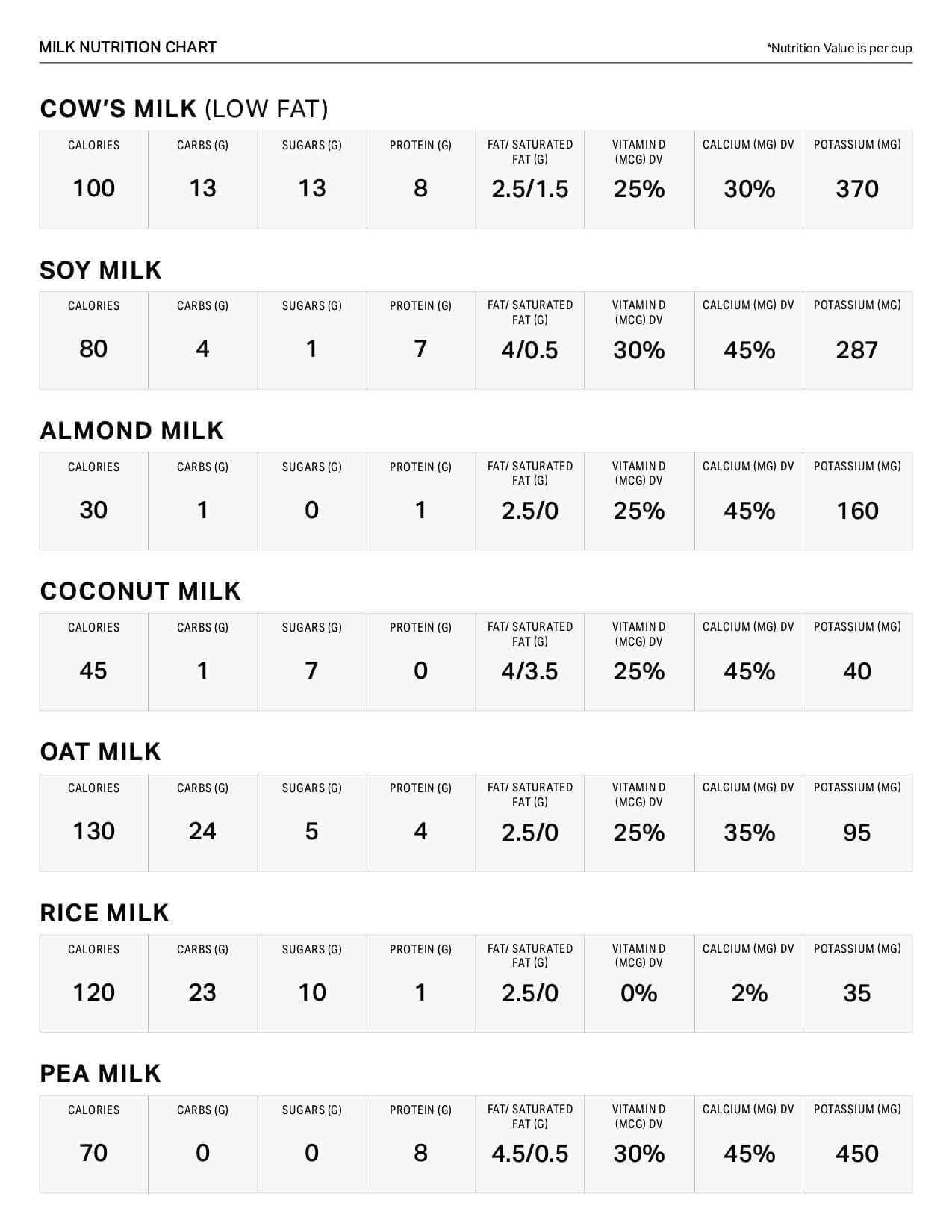
[/pdf_insert]
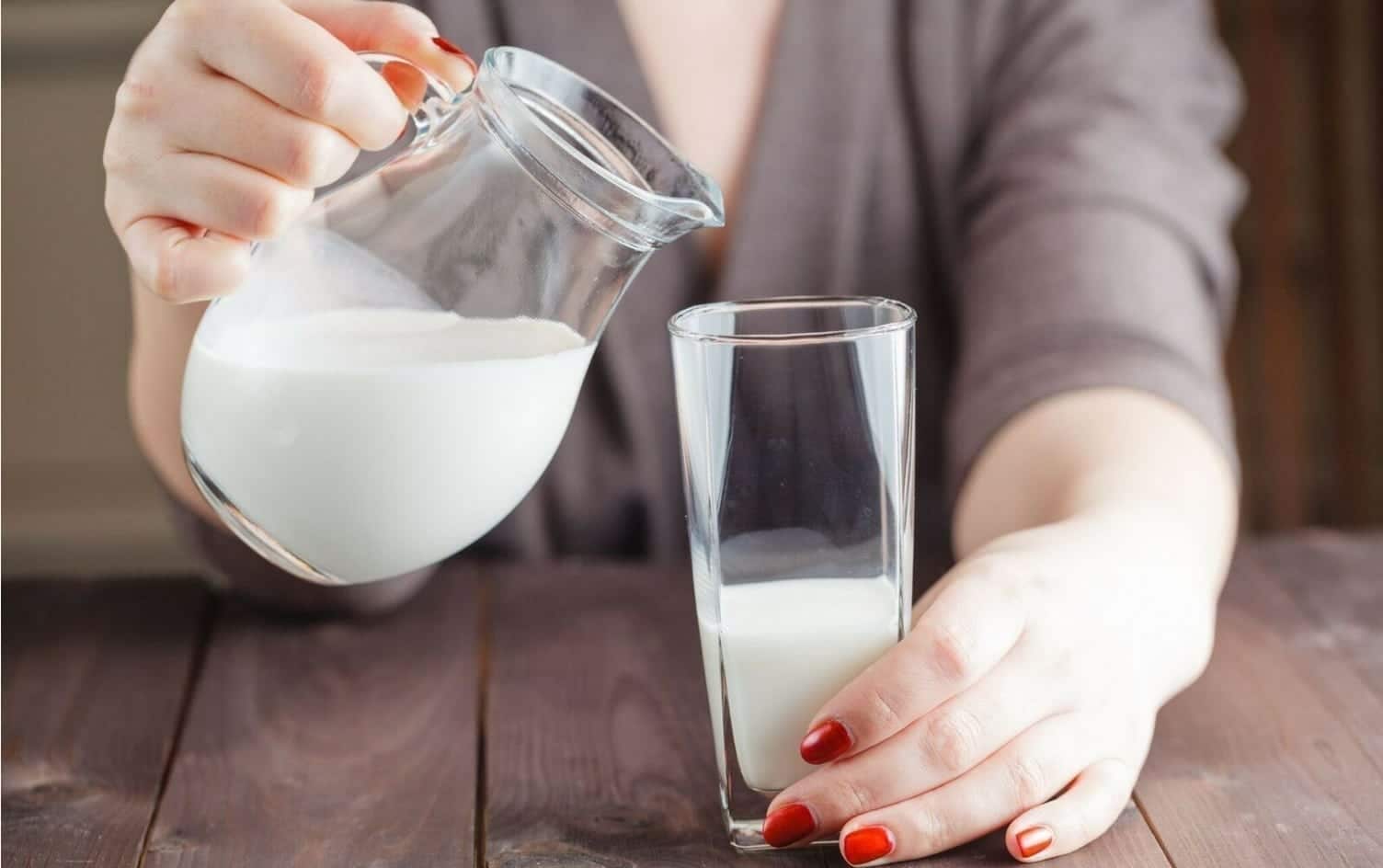




2 Responses
We’re the only species to drink another species growth hormone. That’s what it is isn’t it?
Thanks for sharing such a useful post. Its a reality that today we are living in a world that you may easily get an alternative to anything. Its beneficial for the people to choose according to their needs but not all the alternatives are nutritionally equal. So we have to know about the health benefits of the alternatives and then use. This blog nicely deal about the seven different kinds of milk and what should be know before going to buy them.